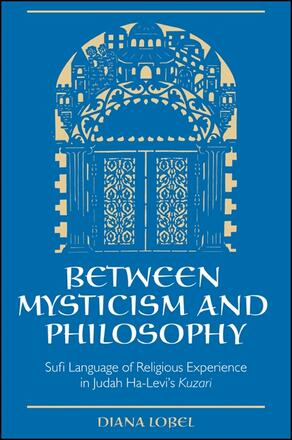
Between Mysticism and Philosophy
Sufi Language of Religious Experience in Judah Ha-Levi's Kuzari
Alternative formats available from:
A revealing study of this important medieval Jewish poet and his relation to Islamic thought.
Description
Judah Ha-Levi (1075–1141), a medieval Jewish poet, mystic, and sophisticated critic of the rationalistic tradition in Judaism, is the focus of this ground-breaking study. Diana Lobel examines his influential philosophical dialogue, Sefer ha-Kuzari, written in Arabic and later translated into Hebrew, which broke religious and philosophical convention by infusing Sufi terms for religious experience with a new Jewish theological vision. Intellectually engaging, clear, and accessible, Between Mysticism and Philosophy is an indispensable resource for anyone interested in the intertwined worlds of Jewish and Islamic philosophy, religion, and culture.
Diana Lobel is Anna Smith Fine Assistant Professor of Judaic Studies at Rice University.
Reviews
"…Lobel's book is an excellent and fascinating piece of scholarship, an indispensable tool for gaining a clearer comprehension of the Kuzari in the light of its Islamic background, as well as a fine explanation of the basic ideas of a thinker whose work continues to exercise influence on Jewish thought. " — Journal of the American Oriental Society
"Guided by the late Harry A. Wolfson's observation that 'concepts ride on the back of terms,' Diana Lobel offers a deeply learned, yet broad-ranging account of how Ha-Levi adapted the religious terminology of Jewish and Islamic sources to provide a compelling exposition and defense of rabbinic Judaism. Moving with equal facility between legal, philosophical, poetic, and mystical texts, she provides balanced and judicious analyses of the key terms and concepts of religious experience and elucidates Ha-Levi's rhetorical strategies in employing them. In addition, she shows repeatedly and convincingly how Ha-Levi co-opted Sufi terminology to fit a Jewish religious context. Rich in insight and erudition, this study represents a superb contribution to our understanding of Ha-Levi's religious enterprise. " — Barry S. Kogan, author of Averroes and the Metaphysics of Causation
"This is a very fine work of scholarship, covering central themes both in medieval Jewish and Islamic philosophy and mysticism. " -- Alfred L. Ivry, author of Al-Kindi's Metaphysics: A Translation of Ya'qub ibn Ish'aq al-Kindi's Treatise "On First Philosophy"